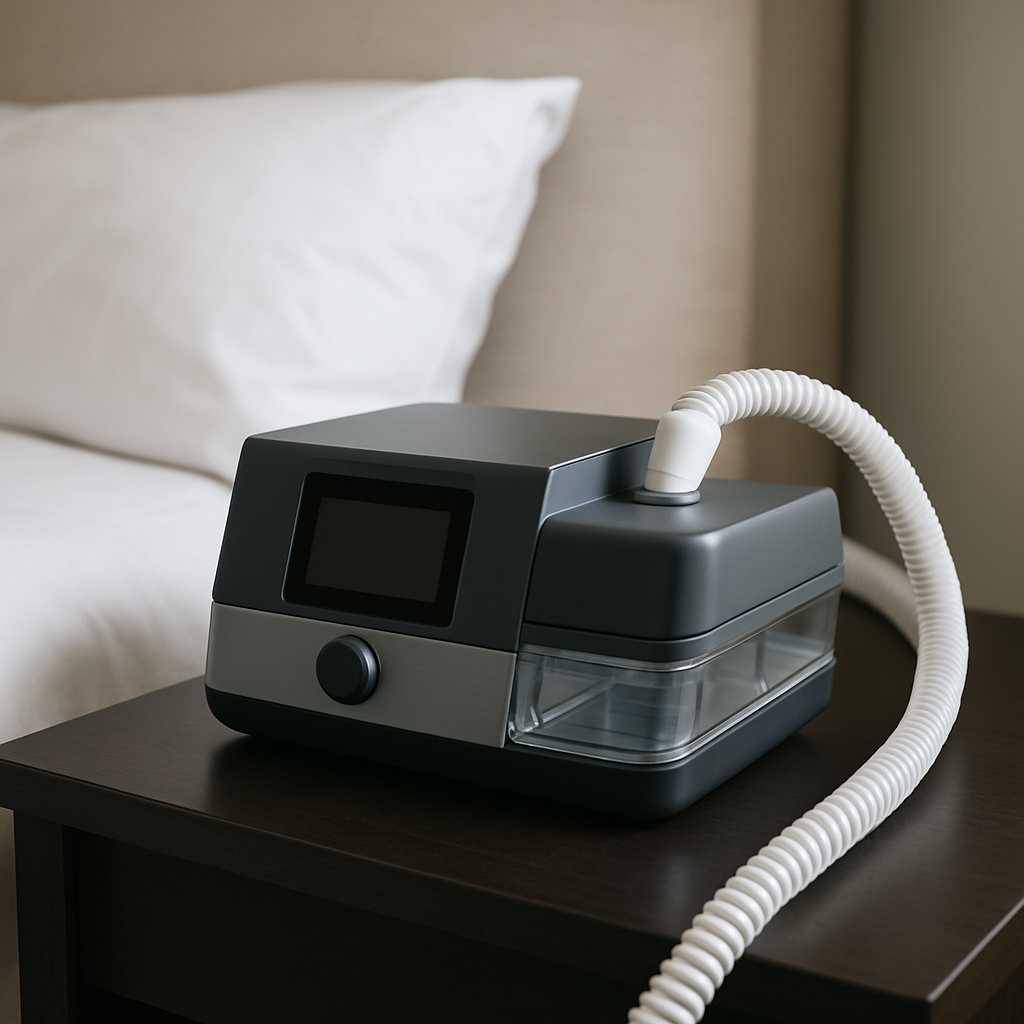
Medical Disclaimer: This article provides educational information about CPAP therapy and sleep apnea treatment. Always consult with healthcare professionals for proper diagnosis and treatment of medical conditions.
For the millions of people diagnosed with sleep apnea, CPAP (Continuous Positive Airway Pressure) therapy represents a life-changing treatment option. This gold standard in sleep apnea treatment has helped countless individuals reclaim their nights and transform their days. If you've recently been prescribed CPAP therapy or are considering it as a sleep solution, understanding how it works and what to expect can make all the difference in your treatment success.
Understanding CPAP Technology
CPAP therapy works by delivering a continuous stream of pressurized air through a mask that covers your nose, mouth, or both. This gentle air pressure keeps your airway open throughout the night, preventing the collapses that cause breathing interruptions during sleep. Modern CPAP machines are sophisticated devices equipped with advanced features like automatic pressure adjustments, humidification systems, and data tracking capabilities that help optimize your sleep therapy.
The technology has evolved significantly over the years. Today's CPAP machines are quieter, more comfortable, and more user-friendly than ever before. Many models include smart features that can adjust pressure automatically based on your breathing patterns, ensuring optimal therapy throughout the night. This sleep technology advancement has made CPAP therapy more effective and tolerable for users.
Getting Started: What to Expect
Beginning CPAP therapy can feel overwhelming, but with proper guidance and patience, most people adapt successfully. Your sleep specialist will work with you to determine the correct pressure settings and help you choose the right mask style. There are several mask options available, including nasal masks, full-face masks, and nasal pillows, each designed to accommodate different sleeping positions and comfort preferences.

The initial adjustment period typically lasts a few weeks. During this time, you might experience some minor side effects such as dry mouth, nasal congestion, or skin irritation from the mask. These issues are usually temporary and can be addressed with proper mask fitting, humidification, and gradual adaptation to wearing the device.
Maximizing Your CPAP Success
Success with CPAP therapy depends largely on consistent use and proper maintenance. Here are key strategies for maximizing your treatment benefits:
Consistency is Key
- Use your CPAP machine every night, even during naps
- Aim for at least 4 hours of use per night (insurance requirement)
- Optimal benefits come from using the device for your entire sleep period
- Track your usage with your machine's built-in monitoring system
Proper Mask Fit
- Work with your equipment provider to find the right size and style
- Ensure a good seal without overtightening
- Consider mask liners or different headgear styles for comfort
- Replace masks according to manufacturer guidelines
Regular Maintenance
- Clean your mask daily with mild soap and water
- Weekly cleaning of tubing and humidifier chamber
- Replace filters as recommended
- Schedule regular equipment checks with your provider
Pro Tip: Keep a sleep diary during your first few weeks of therapy. Note any issues or concerns to discuss with your healthcare provider, and track improvements in your sleep quality and daytime energy levels.
Overcoming Common Challenges
Many CPAP users face initial challenges, but most can be overcome with proper support and adjustments:
Mask Discomfort
- Try different mask styles and sizes
- Use mask liners to reduce skin irritation
- Adjust headgear tension for optimal comfort
- Consider nasal pillows for minimal contact
Dry Mouth or Nasal Congestion
- Use a heated humidifier
- Adjust humidity levels seasonally
- Consider a chin strap for mouth breathing
- Use saline nasal spray if needed
Feeling Claustrophobic
- Practice wearing the mask while awake
- Try relaxation techniques
- Start with shorter periods
- Consider working with a sleep therapist

The Life-Changing Benefits
When used consistently, CPAP therapy can dramatically improve your quality of life. Users often report:
Improved Sleep Quality
- Deeper, more restorative sleep
- Fewer nighttime awakenings
- Reduced snoring
- Better sleep continuity
Increased Daytime Energy
- More alertness throughout the day
- Better concentration and memory
- Improved work performance
- Enhanced physical energy
Better Health Outcomes
- Lower blood pressure
- Reduced heart disease risk
- Improved glucose control
- Enhanced immune function
Working with Your Healthcare Team
Success with CPAP therapy is a collaborative effort between you and your healthcare team. Regular follow-up appointments with your sleep specialist are important for monitoring your progress and making necessary adjustments. Many modern CPAP machines have wireless connectivity that allows your healthcare provider to monitor your usage and therapy effectiveness remotely.
Don't hesitate to communicate any concerns or challenges you're experiencing. Your healthcare team is there to support you and can often provide solutions to improve your comfort and therapy effectiveness. Remember, CPAP therapy is a long-term treatment, and finding the right setup may take time and patience.
Success Story: "After years of poor sleep and constant fatigue, CPAP therapy has completely transformed my life. It took a few weeks to adjust, but now I can't imagine sleeping without it. My energy levels are better than they've been in years!" - John D., CPAP user for 2 years